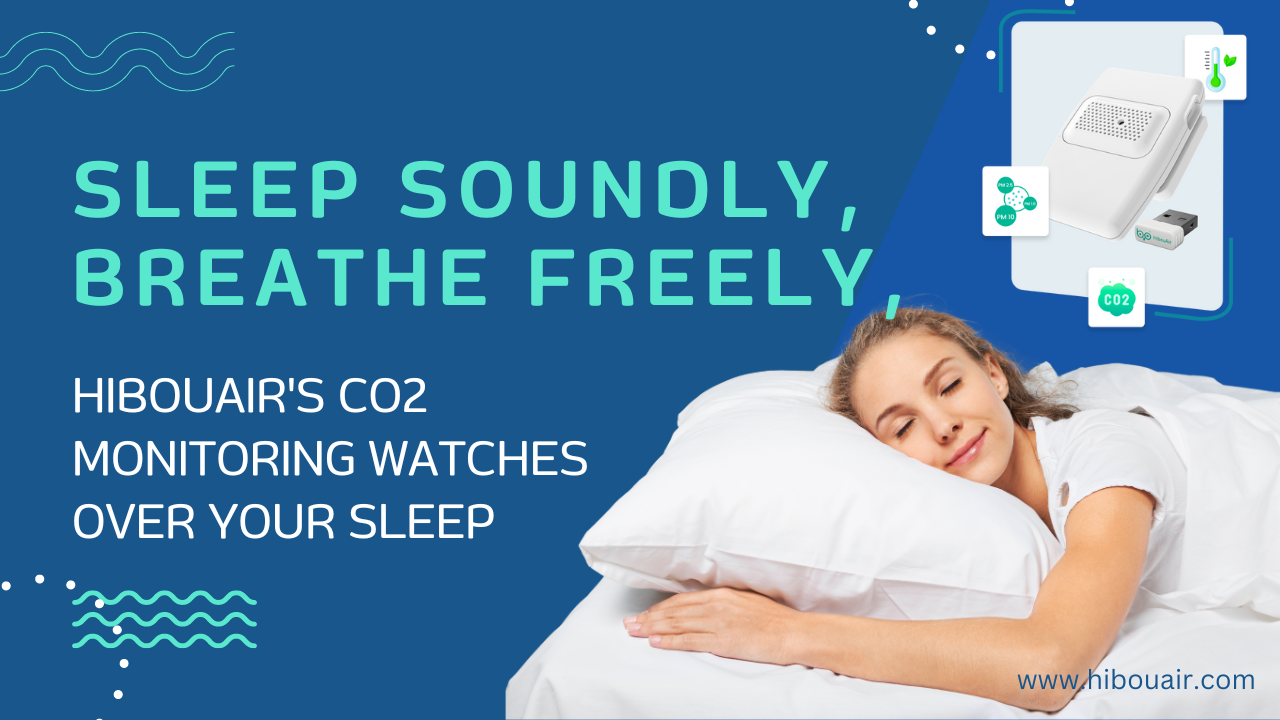Monitoring and Managing CO2 Levels for Restful Nights
In a world where our surroundings are becoming increasingly polluted, maintaining good air quality is vital not just for our daytime activities but also for our nighttime rest. Poor air quality, especially elevated levels of carbon dioxide (CO2), can have a significant impact on the quality of our sleep.
Carbon dioxide is a natural component of the air we breathe, but its levels can rise due to various factors such as poor ventilation, crowded spaces, and indoor pollution sources. When CO2 concentrations in our sleeping environment become elevated, it can lead to several negative effects on our sleep quality:
- Disrupted Sleep Patterns: High CO2 levels can cause sleep disturbances, leading to frequent awakenings during the night. This disrupts the natural sleep cycle and can leave you feeling groggy and fatigued the next day.
- Reduced REM Sleep: Rapid Eye Movement (REM) sleep is crucial for cognitive functions, memory consolidation, and overall mental well-being. Elevated CO2 levels have been linked to a reduction in REM sleep, affecting your ability to feel rested and alert during the day.
- Morning Headaches: Waking up with a headache is a common symptom of excessive CO2 exposure during sleep. This is often accompanied by feelings of lethargy and lack of focus.
- Daytime Sleepiness: Poor sleep quality due to high CO2 levels can contribute to daytime sleepiness and decreased productivity.
Reducing CO2 for Restful Nights
To ensure a peaceful and restorative sleep environment, consider the following tips to reduce CO2 levels:
- Improve Ventilation: Proper ventilation is essential to circulate fresh air and expel CO2. Open windows and use fans to increase airflow, especially before bedtime.
- Use Air-Purifying Plants: Certain indoor plants, like snake plants and peace lilies, can help naturally filter and purify the air, lowering CO2 levels.
- Limit Indoor Pollution Sources: Reduce the use of products that emit pollutants, such as aerosol sprays, cleaning chemicals, and tobacco smoke.
- Regular HVAC Maintenance: Ensure your heating, ventilation, and air conditioning systems are well-maintained to optimize airflow and filtration.
Introducing HibouAir: Your Sleep Guardian
Monitoring air quality, particularly CO2 levels, during sleep is now easier than ever with the HibouAir device. HibouAir is an innovative indoor air quality monitoring device that provides real-time data on various air quality parameters, including CO2 levels, temperature, humidity, VOCs, and atmospheric pressure. With its user-friendly interface and comprehensive historical data storage of up to 7 days, HibouAir empowers you to make informed decisions about your sleep environment.
Imagine being able to track your CO2 levels while you sleep and correlating them with your sleep quality. With this data at your fingertips, you can adjust your sleeping environment accordingly, whether it’s opening a window, using an air purifier, or employing other strategies to optimize air quality. HibouAir ensures that you wake up refreshed, rejuvenated, and ready to take on the day.
Sleep is a fundamental pillar of our overall well-being, and the quality of our sleep is closely linked to the air we breathe. High CO2 levels can disrupt our sleep patterns and leave us feeling tired and unrefreshed. By understanding the effects of CO2 on sleep and implementing measures to reduce its presence, we can significantly enhance our sleep quality. The HibouAir device acts as a guardian of your sleep environment, allowing you to monitor and manage CO2 levels effortlessly. With HibouAir, you can take control of your sleep and embark on a journey towards more restful nights and brighter mornings.

